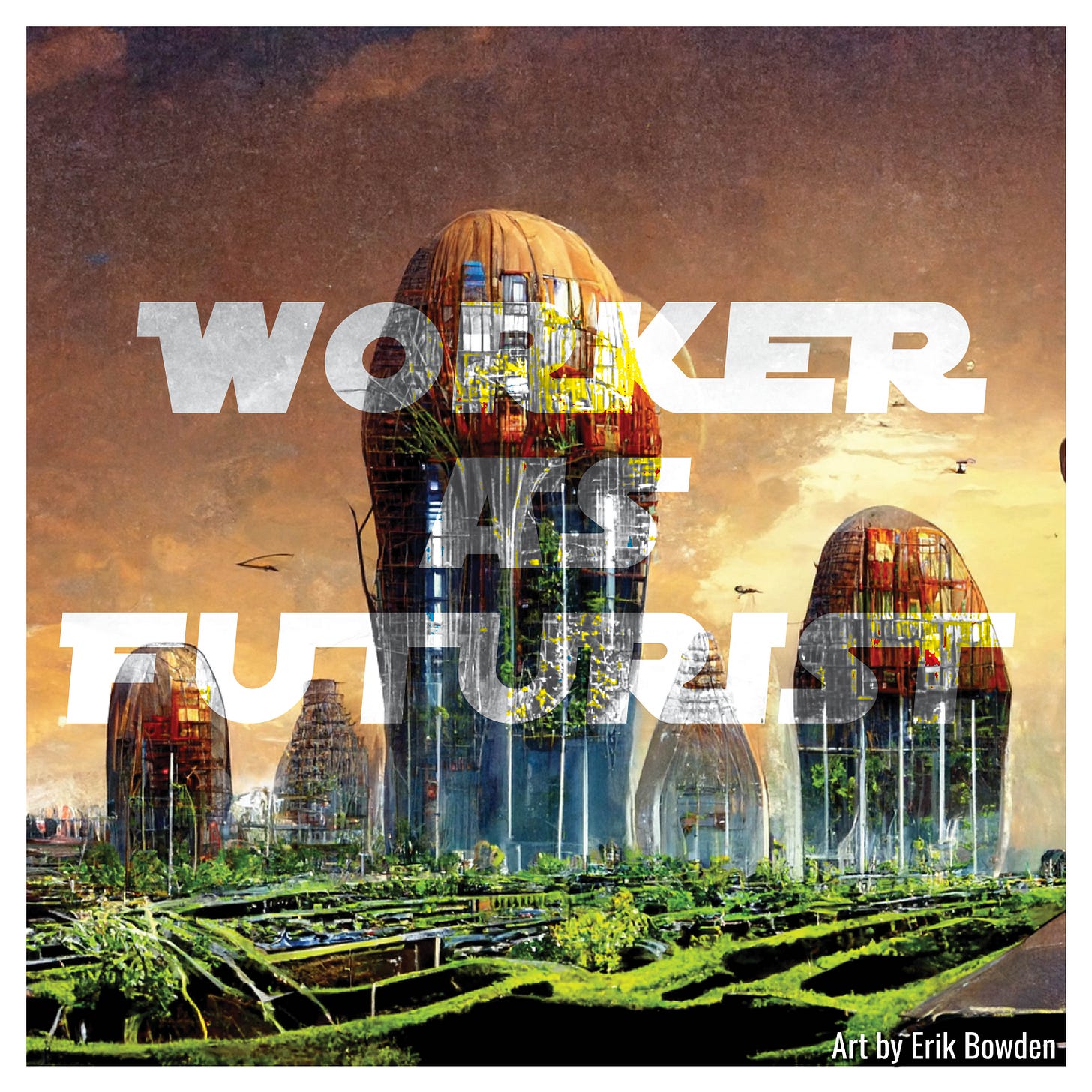The Game at War with the World
Plus: Berlin hearts-and-minds workshop; and "Writing Back Against Amazon’s Empire"
For the next few weeks I’ll be sending out newsletters once every two weeks to announce the latest episode of The Exploits of Play, the podcast I’ve made with Halle Frost from the Weird Economies platform about the increasingly important role of games in a moment of capitalism that keeps getting weirder.
The Game at War with the World
Listen to S. M. Amadae on the powers behind the prisoner’s dilemma
In the second episode of The Exploits of Play S. M. Amadae, author of the 2016 Prisoners of Reason: Game Theory and Neoliberal Political Economy, joins us to talk about how one particularly etiolated and nasty approach to games (based in part on the ghoulish “prisoner’s dilemma”) came to reshape geopolitical, military, economic, legal and policy thinking in the 20th century. In the 21st, it continues to guide big tech, AI and many of the other most consequential developments of our age.
You can listen here and subscribe by searching for “Weird Economies” in your podcast app. It’s also mirrored on the Soundcloud of RiVAL: The ReImagining Value Action Lab; you can subscribe here or by searching for “RiVAL radio” in your podcast app.
The Player and the Played
Public talks online and in Brazil
The aforementioned Exploits of Play podcast continues my practice of doing research in public, in this case for my ongoing project The Player and the Played: Financialization, Gamification and (anti-)Fascism.
I’ll be giving a works-in-progress talk about it on Tuesday, March 12 at 13h Eastern for the English Department at Lakehead University, where I teach. The event is on zoom and can be joined here.
I’ll also be presenting on this project later this month in Brazil. On March 19 I will be in Rio speaking on the question “What is an antifascist game? Intervening in the crisis politics of play” for Terranias: Núcleo de Pensamento Ecológico (not a public event). From March 20-22 I will be the keynote at II Power Play – Simpósio Internacional em Entretenimento Midiático, Jogo e Poder in the city of João Pessoa, and also leading a workshop there on the question of antifascist games March 25-26.
Mayday Movement (anti-)Academy
Join Sense & Solidarity in Berlin (April 29-May 3) for a 4-day workshop on changing hearts and minds
Sarah Stein Lubrano and I invite community organizers, radical artists, activists, educators and other practitioners of the radical imagination to gather in Berlin around Mayday to learn techniques and theories for changing hearts and minds. It’s inexpensive and will be a blast.
We’ll start reviewing applications on March 15. Read more and fill in a quick application here.
“Writing Back Against Amazon’s Empire”
A new article in Triple-C on the Worker as Futurist project
How should we characterise Amazon relative to broader trends in digital capitalism and workers’ struggles within, against, and beyond it? How should we account for the role of SF in Amazon’s development and the recomposition of digital capitalism more broadly?
The journal Triple-C will shortly be publishing an article written by the Worker as Futurist team (Max Haiven, Graeme Webb, Xenia Benivolski and Sarah Olutola) “Writing Back Against Amazon’s Empire: Science Fiction, Corporate Storytelling, and the Dignity of the Workers’ Word.” You can read a preliminary version here.
Since its founding in 1994 as an online bookstore, Amazon has “revolutionised” not only the market for literature but also expanded aggressively and transformatively in sectors including consumer retail, film and television, groceries, logistics, robotics, surveillance, AI and web services. This growth and expansion is grounded in the firm’s internal and outward-facing rhetoric about its leading contribution to a brighter future, a narrative deeply inspired by the genre of science or speculative fiction (SF). But Amazon’s utopian vision is largely experienced as a dystopia by most of its rank-and-file workers, who labour under exploitative conditions of surveillance, robotization, and relentless managerial control. Hence our team inaugurated the Worker as Futurist project to support rank-and-file Amazon workers to read/watch SF stories to collectively understand their employer and its world, and also to write short, SF stories about “the world after Amazon.” In this preliminary report on the project, we explain the inspirations for the project and reflect on some of what we have learned from the participants, as well as some implications for the futures of platform workers generally.
Later this year, the Worker as Futurist project will publish a collection of 10 stories about The World After Amazon by rank-and-file Amazon workers. Stay tuned!






